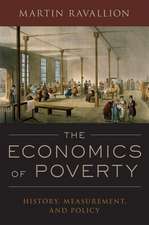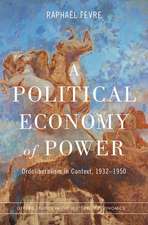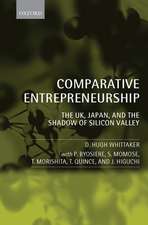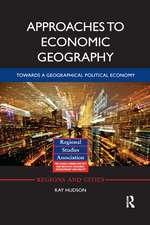Paper Tigers, Hidden Dragons: Firms and the Political Economy of China's Technological Development
Autor Douglas B. Fulleren Limba Engleză Hardback – 25 mai 2016
| Toate formatele și edițiile | Preț | Express |
|---|---|---|
| Paperback (1) | 250.72 lei 31-37 zile | |
| OUP OXFORD – 16 mai 2019 | 250.72 lei 31-37 zile | |
| Hardback (1) | 625.23 lei 31-37 zile | |
| OUP OXFORD – 25 mai 2016 | 625.23 lei 31-37 zile |
Preț: 625.23 lei
Preț vechi: 831.69 lei
-25% Nou
Puncte Express: 938
Preț estimativ în valută:
119.66€ • 124.45$ • 100.13£
119.66€ • 124.45$ • 100.13£
Carte tipărită la comandă
Livrare economică 04-10 martie
Preluare comenzi: 021 569.72.76
Specificații
ISBN-13: 9780198777205
ISBN-10: 0198777205
Pagini: 298
Dimensiuni: 168 x 234 x 22 mm
Greutate: 0.39 kg
Editura: OUP OXFORD
Colecția OUP Oxford
Locul publicării:Oxford, United Kingdom
ISBN-10: 0198777205
Pagini: 298
Dimensiuni: 168 x 234 x 22 mm
Greutate: 0.39 kg
Editura: OUP OXFORD
Colecția OUP Oxford
Locul publicării:Oxford, United Kingdom
Recenzii
The lacklustre performance of most state enterprises in high-tech activities, the billions of yuan wasted in central government technological upgrading projects, and the presence of corruption around state subsidy programmes is also beyond contention. Fuller provides detailed post-mortems of ill-managed state projects, with the most rigorous treatments reserved for IC fabrication and IC design.
This book gives a rich and vivid account of the origins and development of China's high technology entrepreneurship based on the author's extensive fieldwork and longitudinal data over the course of 12 years. The result of Fuller's research is a meticulous, theoretically insightful book on the political economy of China's high technology development. It is an essential text for those who are interested in the development in East Asia and the political economy of development for late industrializers.
Fuller's explanation is exhaustively researched and persuasive. This book is required reading for anyone who seriously wishes to understand China's difficulties and successes in high tech. It is well written and perceptively researched. Fuller's Hidden Dragons are not only promising for China, they show how in an ever-more-connected world, developing economies can draw creatively on foreign institutions.
Valuable scholarly work always stimulates debate, and Fullers brilliant contribution is no exception. With its provocative theory and extraordinary data, the book should be required reading for anyone interested in knowledge economy, comparative institutions, the political economy of development, and/or the relationship between industry and the state in contemporary China.
This book gives a rich and vivid account of the origins and development of China's high technology entrepreneurship based on the author's extensive fieldwork and longitudinal data over the course of 12 years. The result of Fuller's research is a meticulous, theoretically insightful book on the political economy of China's high technology development. It is an essential text for those who are interested in the development in East Asia and the political economy of development for late industrializers.
Fuller's explanation is exhaustively researched and persuasive. This book is required reading for anyone who seriously wishes to understand China's difficulties and successes in high tech. It is well written and perceptively researched. Fuller's Hidden Dragons are not only promising for China, they show how in an ever-more-connected world, developing economies can draw creatively on foreign institutions.
Valuable scholarly work always stimulates debate, and Fullers brilliant contribution is no exception. With its provocative theory and extraordinary data, the book should be required reading for anyone interested in knowledge economy, comparative institutions, the political economy of development, and/or the relationship between industry and the state in contemporary China.
Notă biografică
Douglas B. Fuller is a Professor in the Department of Business Administration of Zhejiang University's School of Management. He previously taught at King's College London, Chinese University of Hong Kong, and American University in Washington, DC. His research spans the political economy of development, technology policy and strategy, and comparative capitalism with a geographic focus on East Asia.





















